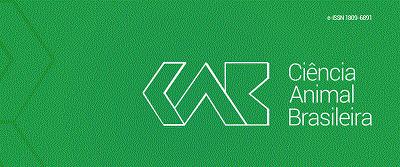This study compared the adaptation traits in common crosses of crossbred dairy cattle in central Brazil. Twenty animals of each of three genetic groups were used: zebu (Bos indicus), Simmental x Zebu (SZ) and Holstein x Zebu (HZ). The test measured variations in rectal temperature (RT), respiration rate (RR) and heart rate (HR) of animals in the shade and after exposure to the sun, as well as mean daily milk production throughout the lactation period. The procedure was repeated three times. There were significant interactions between test group and genetic group for the traits investigated and the correlations among traits were low. The RR of the crossbred groups may be controlling body temperature in such a way as not to cause an increase in RT. Milk production influenced RR in crossbred cows exposed to the sun, confirming their poorer adaptation in comparison with zebu cows. We observed that the adaptation can be measured in terms of production within the same genetic group. In conclusion, the crosses with European breeds produced more milk than zebu, although they were influenced by heat/solar radiation.
dairy cattle; heart rate; milk production; rectal temperature; respiration rate
